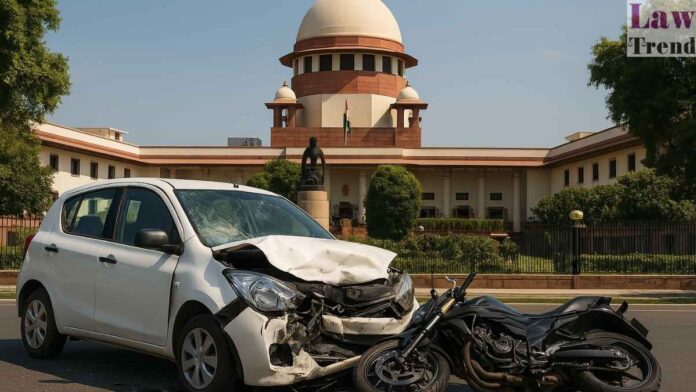The Supreme Court has reaffirmed that even married sons and daughters of a deceased victim are entitled to seek compensation under the Motor Vehicles Act, irrespective of whether they were financially dependent on the deceased. The ruling came in Civil Appeal No. 7199 of 2025 (Jitender Kumar & Anr. vs Sanjay Prasad & Ors.), arising
To Read More Please Subscribe to VIP Membership for Unlimited Access to All the Articles, Download Available Copies of Judgments/Order, Acess to Central/State Bare Acts, Advertisement Free Content, Access to More than 4000 Legal Drafts( Readymade Editable Formats of Suits, Petitions, Writs, Legal Notices, Divorce Petitions, 138 Notices, Bail Applications etc.) in Hindi and English.




